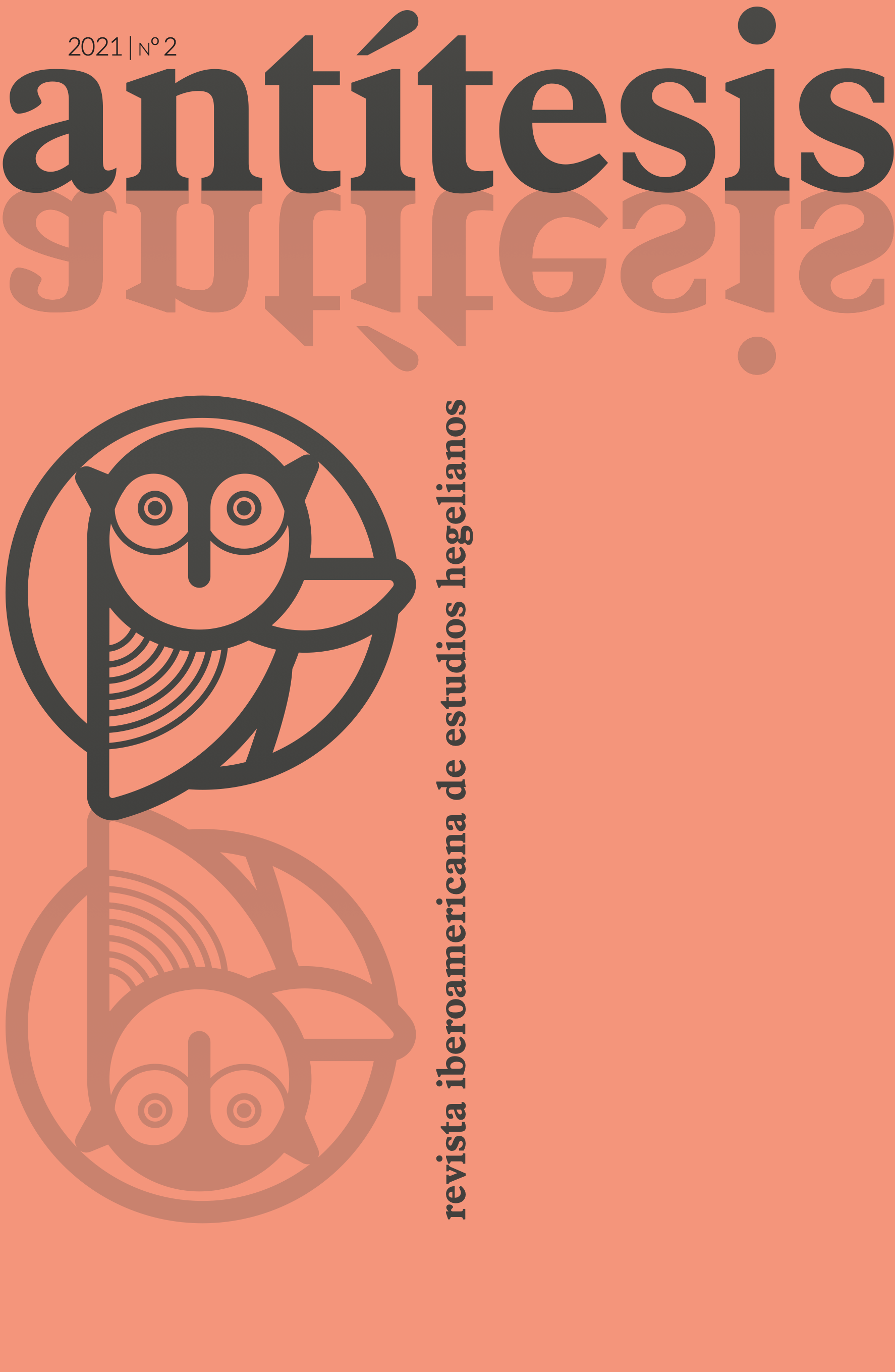Palavras-chave:
Aristóteles, Edad Media, Teología, Historia de la FilosofíaDireitos de Autor (c) 2021 Cristina García González

Este trabalho encontra-se publicado com a Licença Internacional Creative Commons Atribuição 4.0.
Resumo
A pesar de la limitada extensión que Hegel dedica a la filosofía de la Edad Media y a las disputas teológicas de la primera Modernidad en sus Lecciones sobre historia de la filosofía y Lecciones sobre la filosofía de la historia universal, estos períodos históricos resultan de gran valor para la transmisión y la transformación histórica del pensamiento de Aristóteles, este sí, fundamental y atentamente tratado por parte del pensador alemán. Por ello, volver la vista atrás implicará integrar a Hegel en la tradición occidental, aunque, dada la magnitud de tal elaboración, el presente artículo constituirá tan solo una primera aproximación a la cuestión.
Downloads
Referências
ARISTÓTELES, Metafísica, Austral, Barcelona, 2020.
BIARD, J., «Nominalism in the later Middle Ages», The Cambridge History of Medieval Philoso-
phy, Cambridge University Press, Cambridge, 2009, pp. 661-673.
––––, «The Middle Ages in Hegel’s Philosophy of History», The Philosophical Forum, Volume
XXXI, No. 3-4, Diciembre, 2000.
CAMACHO, K., «Hegel, metafísica del mal y ontologización del presente», Logos Revista de
Filosofía, 2012, 40(119), pp. 71-107..
D’HONDT, J.. Hegel, Tusquets, Barcelona, 2002.
HEGEL, G. W. F., Enciclopedia de las ciencias filosóficas, Abada, Madrid, 2017.
––––, Lecciones sobre la filosofía de la historia universal, Alianza Editorial, Madrid, 2012. ––––, Lecciones sobre la historia de la filosofía, Fondo de Cultura Económica, México, 2005. TAYLOR, CH., Hegel, Cambridge University Press, Cambridge, 1999.
